calsfoundation@cals.org
Earl F. Quigley (1891–1972)
From 1914 to 1946, Earl Quigley was a coach at Little Rock High School (later renamed Little Rock Central High School). His coaching career was interrupted by service as a lieutenant in the U.S. Army artillery during World War I. At various times, he coached football, basketball, baseball, and track and field at the high school. His teams won state championships in each sport.
Earl F. Quigley was born on February 22, 1891, in Oshkosh, Wisconsin, to James Quigley and Rose Anna Quigley. He attended the Stout Institute in Menomonie, Wisconsin (now the University of Wisconsin–Stout), where he was a star quarterback. When his college coach suddenly quit, Quigley became both player and coach for football and baseball at the school in 1912 and 1913. He graduated from there in 1913 and, in 1914, accepted an offer from Little Rock High School. He became a manual arts teacher and coach at the high school at 14th and Scott Streets. (This school became East Side Junior High School when the new high school was built at 14th and Park in 1927.)
Quigley married Helena Key in 1945. She had a career as a teacher at the high school. They had no children. Their vacations were spent traveling extensively in the United States and throughout the world. (According to an Arkansas Gazette article, when he retired from the high school, he wired his resignation from “somewhere near Hawaii.”)
He coached Little Rock High School football from 1914 to 1935 and had record of 149–56–11, including eight state championships. In basketball, which he coached from 1916 to 1930, his teams had a record of 306–95, with four state championships. The dominant baseball teams he coached were 207–17 from 1916 to 1926, with eight championships. Baseball was discontinued as a high school sport after 1926.
His track and field teams dominated the sport, winning 98 of 100 meets from 1916 to 1946, including eighteen state championships. The team was featured several times in Ripley’s Believe It Or Not!, after winning fifty consecutive meets, going fifteen years without a defeat, and winning ninety-seven consecutive meets. (No meets were held in 1943 and 1944 because of World War II.)
A former football player said that the coach told players, “Play to win. Play rough and mean and hit harder than the other fellow. But play fair and honest. One dirty play and out you come.”
His first football team in 1914 had twenty-four players. Six of them were kicked off the team for not following training rules. The eighteen-member team then won all the remaining games and the conference championship. Quigley’s 1930 football team had a record of 9–2. The two losses were to Shreveport, Louisiana, and to Fordyce (Dallas County), the latter of which did have some advantage with a star player named Paul Bryant, better known by his nickname Bear.
During his career, he attended several coaching schools for various sports, including those taught by legendary coaches such as Pop Warner, Knute Rockne, and A. A. Stagg. In thirty-two years as a coach, he won thirty-nine state championships. After giving up coaching football, he became athletic director for the high school and the three junior high schools, and he was also business manager of the high school.
He retired from all coaching duties in 1946, devoting his time to administrative duties. The teams he coached had a combined record of 760 wins, 190 losses, and 11 ties. In 1955, he retired from the high school and then was business manager for the Little Rock Travelers professional baseball team from 1957 until 1960.
In 1957, the high school’s Tiger Stadium was renamed Quigley Stadium in his honor. The Arkansas Athletic Union elected him to four terms as president. He was inducted into the Arkansas High School Coaches Association Hall of Fame in 1995, the Arkansas Track and Field Hall of Fame in 1997, the Arkansas Sports Hall of Fame in 1961, and the Arkansas High School Athletic Administrators Association Hall of Fame in 2011.
He had successful open-heart surgery in Houston in 1971 as one of the oldest to have that procedure. Quigley died from cancer on April 1, 1972.
For additional information:
“Central’s Legendary Coach Earl Quigley Dies: Was 81.” Arkansas Gazette, April 2, 1972, p. 8B.
“Earl F. Quigley, a Former Coach, Dies at Age 81.” Arkansas Democrat, April 1, 1972, pp. 1, 9.
Quigley Family Collection. Butler Center for Arkansas Studies. Central Arkansas Library System, Little Rock, Arkansas. Finding aid online at https://cdm15728.contentdm.oclc.org/digital/collection/findingaids/id/5647/rec/1 (accessed February 23, 2024).
W. W. Satterfield
Little Rock, Arkansas

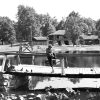
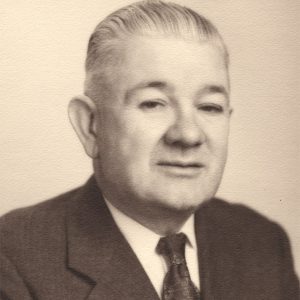
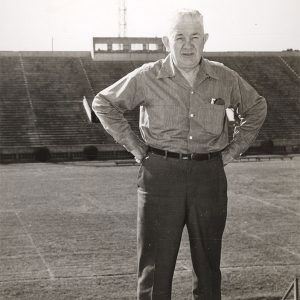
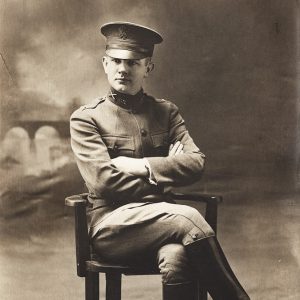
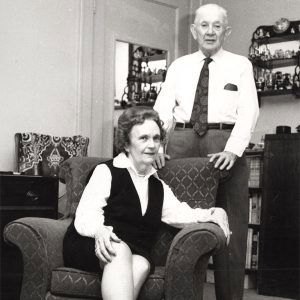




Never heard of the gentleman. But he was an incredible man, coach, and human being. Thanks for sharing his story!